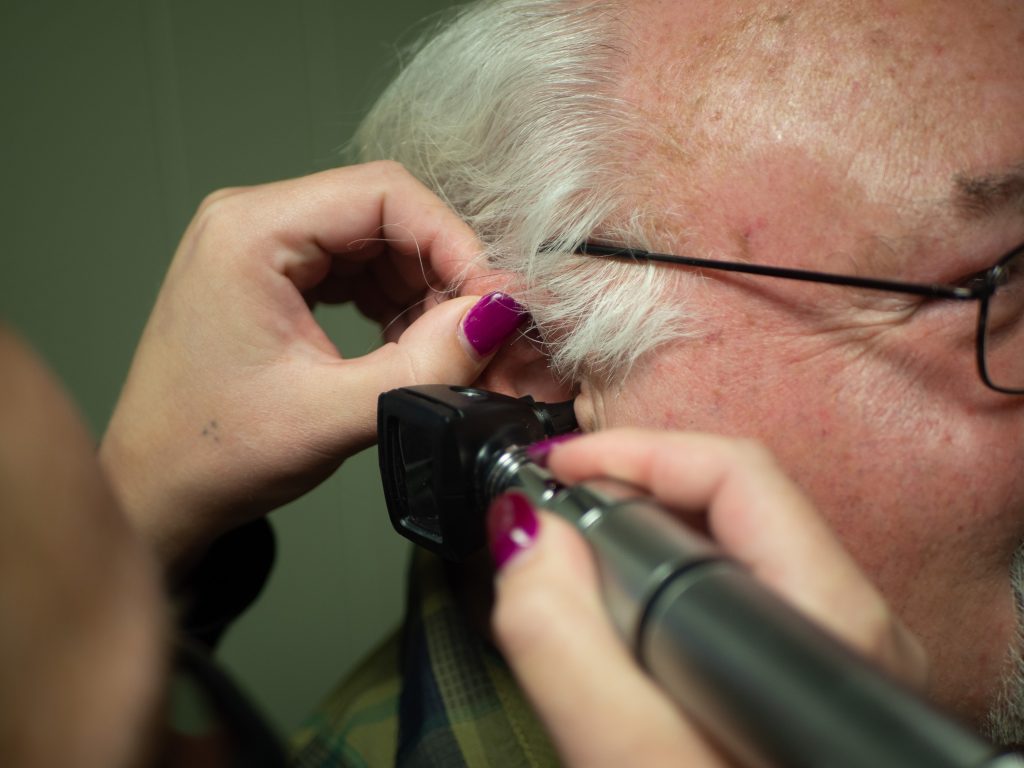
Authors: Daisy Long and the Social Care Elves.
This blog was written a little differently to usual. As part of the relaunch of the Social Care Elf, a woodland workshop took place in September 2023, with input from her woodland cousin Mental Elf. As part of this event, the elf apprentices undertook a group critical analysis. Using the CASP RCT checklist (CASP, 2018), and drawing on the range of practice and academic experience in the room, the group considered the findings and implications of this study which then informed the content and key points raised in this blog.
This is an interesting study to consider from the perspective of the social care elf, as it provides a rare opportunity to critically analyse an experimental design which although familiar to our health and mental health colleagues, is often not possible to achieve in social care and social work research, this being the randomised controlled trial (RCT). This paper documents one of a series of studies that have taken place within the ACHIEVE programme in the USA. A multi-centre, longitudinal piece of work that started in 1989 and is still being regularly reported in the literature as new evidence emerges. The ACHIEVE programme overall is focused on the connection between hearing loss and brain health, as part of a wider healthy aging research programme.
For those who want to find out more about this project visit the website here – ACHIEVE Study
In this paper, published in The Lancet in July 2023, Lin and colleagues report and analyse an RCT which compares the impact of two types of intervention – health promotion and hearing promotion – on the cognitive functioning of older adults by undertaking cognitive testing at set intervals with participants and comparing the results.
This is the type of paper that social care colleagues would often avoid, firstly it is published in a health journal, which whilst credible is not widely used or accessed by social care professionals, and secondly its experimental design and reporting are statistics heavy, with tables of data and measures throughout, which while relevant, is not easily accessible or applicable for the average practitioner.
While the presentation of the research may not be in the ‘go to’ format for social care, the research question is highly relevant, and touches on ways that older adults can be supported in terms of maintaining cognitive skills and hence greater independence, for as long as possible.
The research question in this case is quite straight forward – Can a hearing intervention reduce cognitive decline in older adults with hearing loss? Within the context of an aging population and increasing rates of dementia diagnoses, interventions, such as the ones used in this research, which are shown to be both effective and easily deployed, could make a significant difference to people’s quality of life if adopted into practice here in the UK. That is why the evidence from studies like this one, are essential pieces of the knowledge toolkit for social care professionals, particularly those working with older adults and cognitive decline, and why the elf apprentice group were asked to appraise and decode this particular paper.

Don’t let the stats put you off, it might not be the ‘go to’ social care option but the findings are relevant to everyday practice.
Methods
This study was carried out across four sites in the USA. Participants were selected based on a predetermined set of inclusion and exclusion criteria to attempt to control a wide range of variables that could impact on the study findings. Participants were recruited from two groups – people already accessing a community based cardiovascular health clinic in the four areas where the study was located, and a group recruited as ‘healthy volunteers’ that had no known health concerns.
To be included within the study, participants needed to be between the ages of 70 – 84 years old, with no previous history of cognitive impairment or decline. In total 3004 participants were screened between November 2017 and October 2019, and of those screened 977 (33%) were included in the study.
Whilst participants were randomly allocated to study groups, it was important that each group was representative in terms of factors such as age, level of hearing loss and whether they were accessing the cardiovascular service and had previously been involved in research studies or were from the healthy volunteer group. In research methodology terms this is called stratification and means that participants are categorised into groups based on common factors which could impact on the validity of the study (in this case level of hearing loss) and then these category groups are then randomised into the two study groups.
Two intervention types were provided, each with a semi-structured treatment plan which could then be tailored to the individual concerned. These were:
- A health education programme on chronic disease prevention.
- A hearing intervention programme, including assistive technology.
Both interventions were provided on a 1-1 basis, with the same level of input (4 x 1 hour support sessions, 6 monthly booster/refresher support). Follow up was provided for both interventions over a three-year period, with neurocognitive testing administered at four points in the study to monitor and measure both global cognitive function and functioning in particular areas (e.g., memory, language, processing etc).
To make sure neither group were disadvantaged as a result of which intervention group they were allocated to, at the end of the three-year period each participant was also provided access to the alternative intervention. This meant that all participants had access to both interventions once the study period was complete.

The study design made sure that the participants were not disadvantaged and both interventions were made available to everyone at the end of the study.
Results
One of the interesting findings in this study is the link between general health (in this case cardiovascular health), hearing impairment and cognitive decline. The ACHIEVE study has considered a wide range of conditions and interventions over its life, and the researchers here identify that different groups have different degrees of, and impacts from, hearing loss. The participant group recruited from cardiovascular community services had been identified by previous studies within the programme, to be at higher risk for cognitive decline overall, and hearing interventions, which support language control, are an effective intervention to prevent or delay cognitive decline.
Whilst not showing significant differences across all of the areas measured, the area of communication and language, and its importance for quality of life in older age, is particularly highlighted within the results. The study reports a 35% difference in the rates of cognitive decline between those who received the hearing intervention and those that received the health intervention, with the hearing intervention combined with assistive technology, showing better outcomes and a slower rate of decline, particularly in the language domain.

Hearing support can make a difference to language and communication – the basis of social interactions.
Conclusions
The results of the study did find differences between the two study groups and concluded that further research is required, signposting readers to the findings of the wider ACHIEVE study findings which support the hypotheses that hearing intervention and cognitive functioning are linked.
The difference in the findings for the general outcomes for the study (i.e., it made little difference to cognitive decline overall) and the findings and outcomes in specific areas (i.e., language and communication benefit from hearing interventions) are interesting from a social care perspective as they point specifically to the role of communication and language in maintaining cognitive function, and identify that wider health concerns also impact on this complex area, with those in the cardiovascular clinic study groups showing more risk factors for cognitive decline more generally.
Strengths & Limitations
The RCT is considered the gold standard of research evidence. It follows scientific methods and experimental design principles and is alien to most social care practitioners who are focused on the person and their experience. For this RCT there are some important considerations in terms of its methods. The authors identify several limitations to the findings, which include issues such as not being able to achieve a ‘blinding’ or ‘masking’ of the method on which control group a person is in, and the need to add additional stratification (i.e., adding variables such as age group and level of hearing loss as different categories of participant to make sure each group is a representative sample of the population).
Implications for Practice
The study group that had the most benefits from the hearing intervention – in this case those with other health concerns, are also likely to be the group accessing social care services. They are also the group at higher risk of developing dementia and the study makes the link (albeit tentatively and with supporting links to other current and planned studies) between dementia and hearing loss as a modifiable risk factor.
While the study drop-out rate is relatively low, several participants were excluded from the health intervention control group because they also sought hearing interventions from other places, which could skew the findings. This suggests that it may actually be interesting to consider whether both interventions used in combination, might be useful for those experiencing hearing impairment, particularly those in older age groups at risk of being assessed as at risk of cognitive decline or deterioration.
We know that social support and communication are key factors in wellbeing, and this study shows that providing people with proactive hearing support has the effect of slowing down the decline of a person’s language, communication, and social engagement. With this being the case, consideration of hearing loss and the impact it can have on individual wellbeing, needs to be included as a standard part of assessment; with practitioners being proactively aware of the impact the hearing loss can have on the cognitive wellbeing of older aged groups, particularly those with coexisting cardiovascular health conditions.

Its always worth asking the question, hearing support can help to mitigate the risk of cognitive deterioration for those at higher risk.
For social care practitioners the key is to ask the question – is the person struggling or withdrawing socially and cognitively because their hearing is deteriorating? Could they benefit from an audiology appointment, rather than needing people to shout so they are heard and understood?
Conflicts of Interest
None
Links:
Primary Paper:
Lin, F.R., Pike, J.R., Albert. M.S., Arnold, M., Burgard, S., Chisolm, T. & others (2023) “Hearing intervention versus health education control to reduce cognitive decline in older adults with hearing loss in the USA (ACHIEVE): a multi-centre, randomized controlled trial.” The Lancet, 402 (10404), 786 – 797
References:
Critical Appraisal Skills Programme (2018). CASP Randomised Controlled Trial Checklist. [online] Available at: casp-uk.net/images/checklist/documents/CASP-Randomised-Controlled-Trial-Checklist/CASP-RCT-Checklist-PDF-Fillable-Form.pdf Accessed: 29/09/2023.
Photo Credits
- Photo by Mark Paton on Unsplash
- Photo by Алекс Арцибашев on Unsplash
- Photo by Age Cymru on Unsplash
- Photo by Philippe Leone on Unsplash
- Photo by Anthony Camerlo on Unsplash
